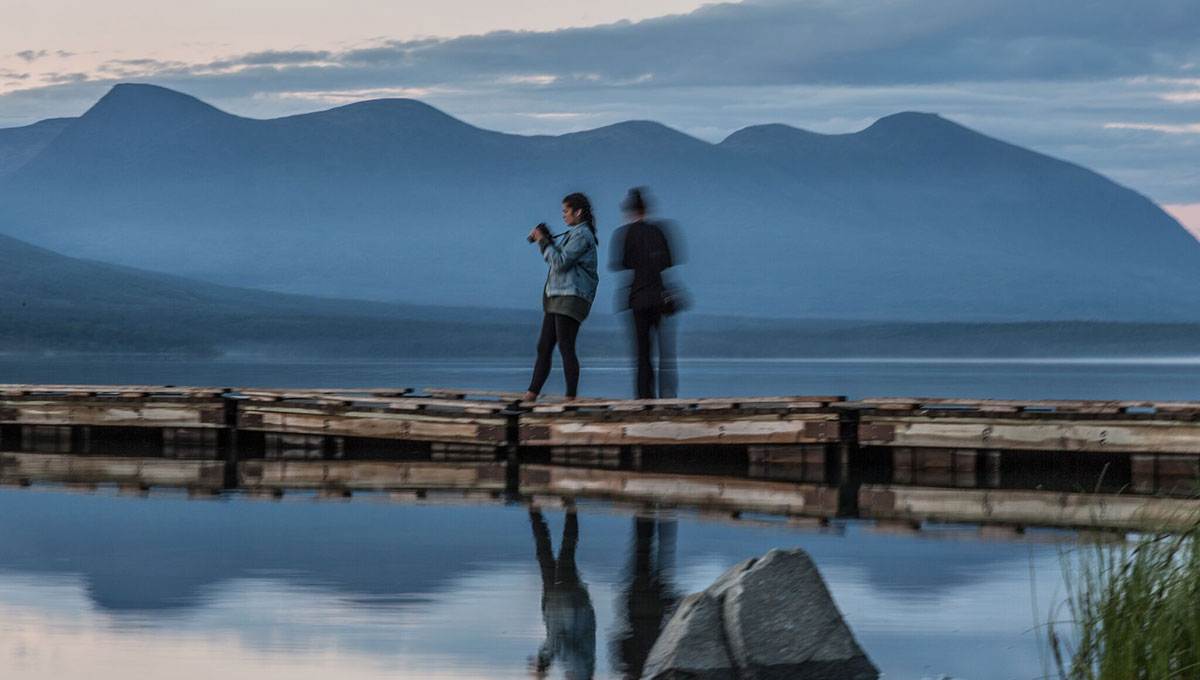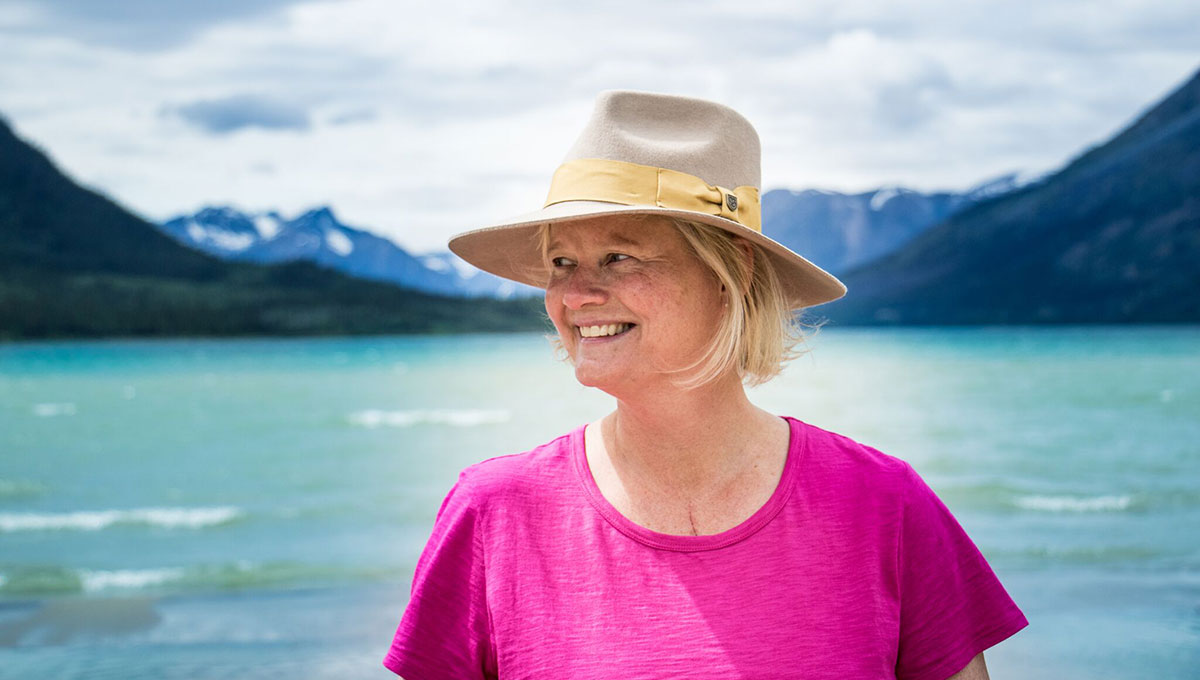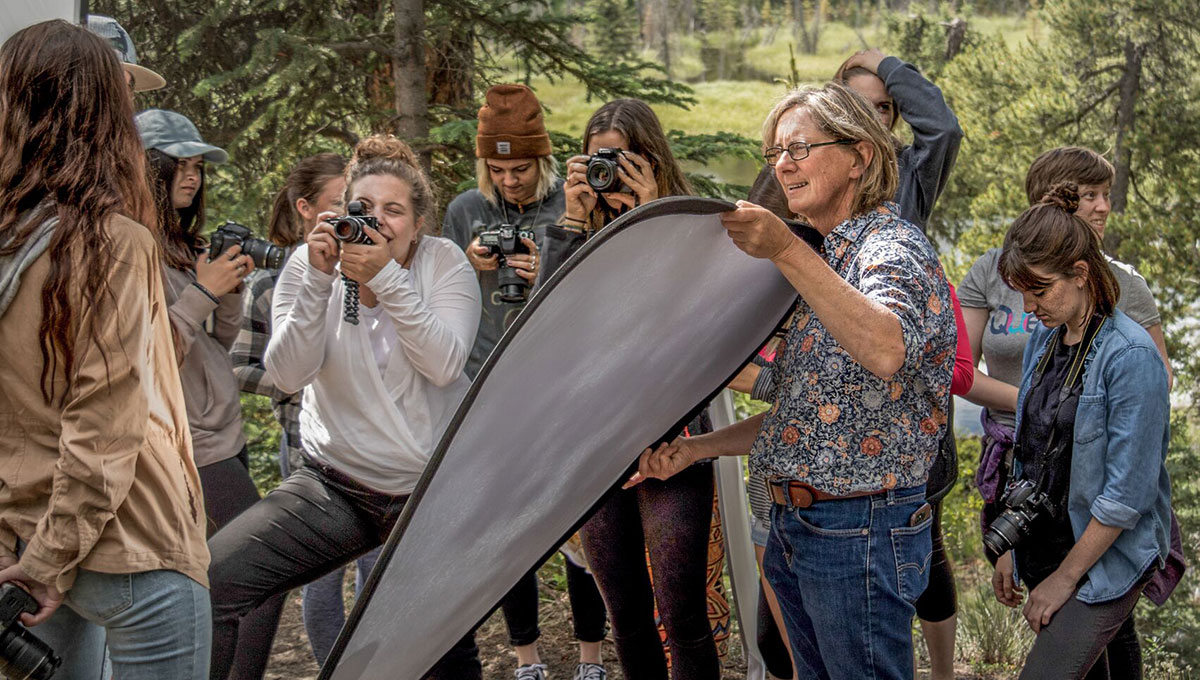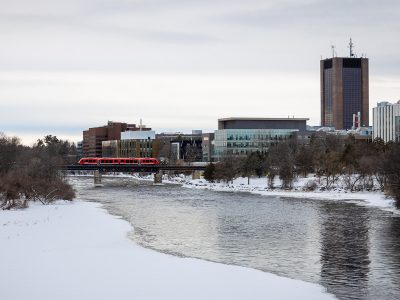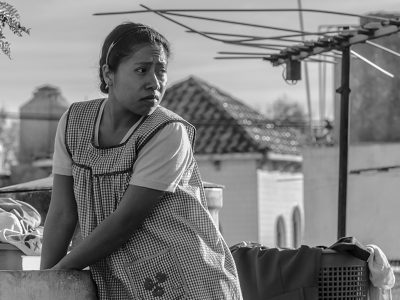By Dan Rubinstein
Photos by Kanina Holmes
Carleton journalism student Sandrine Murray stood beside a garage and storage facility in Carcross, a tiny Yukon community about an hour south of Whitehorse, talking to a local man named Johnny Johns. She was there for the demolition of the garage; Johns, a supervisor of the environmental cleanup, was telling her about his experiences at the residential school that used to stand on the site.
“It’s one thing to hear about this part of Canada’s past in the classroom,” says Murray, “and something else altogether when somebody shares their story firsthand.”
Murray is in the Yukon for a month-long experiential learning program called Stories North, which is immersing 15 Carleton students in lives of the territory’s Indigenous and non-Indigenous residents as a direct response to the Truth and Reconciliation Commission’s call for journalism schools to help build student capacity for intercultural understanding, empathy and mutual respect.
Murray, who is heading into her fourth year of the undergraduate journalism program, put together a photo and text piece about Johns for the Stories North website. Her time in the Yukon has already changed how she approaches assignments as a budding journalist, she says. “Every person has a voice, and it’s my responsibility to reflect that voice, to the best of my abilities, in my work.”
“This is not just history,” adds fellow participant Rachel Levy-McLaughlin, a Master of Journalism student.
“We’re talking about things people are dealing with every day. The best way to understand an issue is to see things in context.”
“This trip,” she continues, “will impact the way I tell not only sensitive stories, but all stories. There’s a lot of nuance missing from journalism, which tends to present things as black and white, especially when dealing with Indigenous issues. We need to a do a much better job of providing context.”
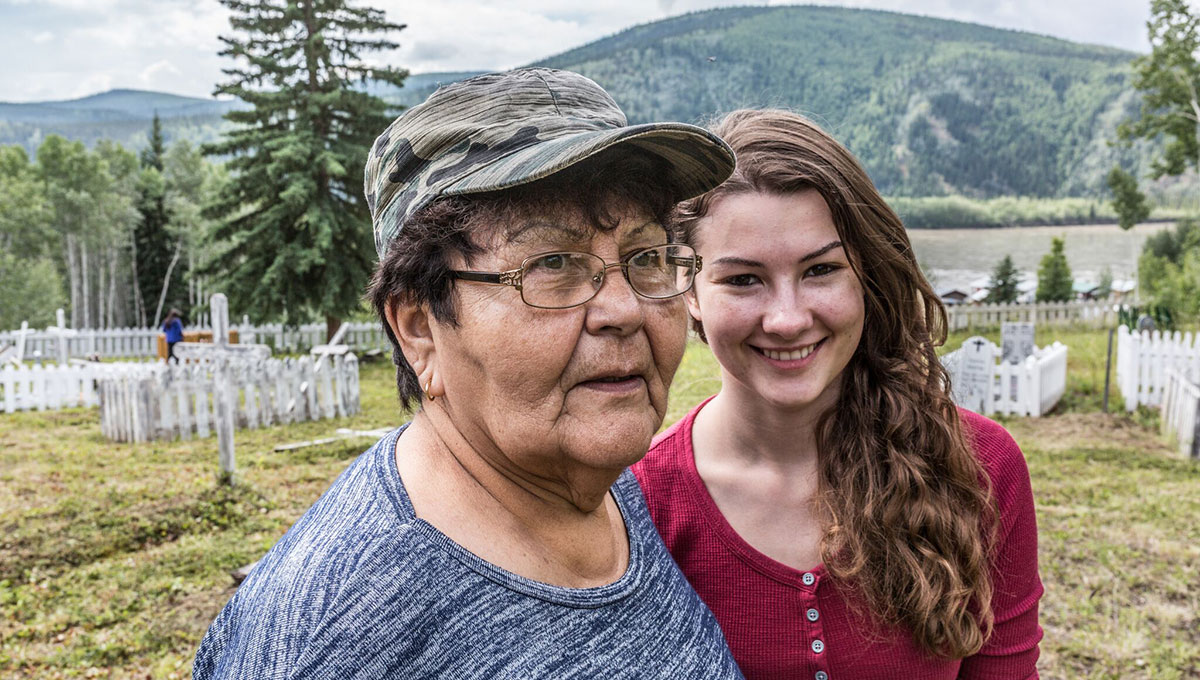
The context of reconciliation
Stories North was created by Carleton Journalism Prof. Kanina Holmes, who worked for both CBC radio and CBC television out of Whitehorse on two separate occasions between 1995 and 2003.
“The Yukon is easy to romanticize,” she wrote in a course outline. “Its mountains and vistas inspire awe…. It produces platitudes that retain some truth and authenticity. Those stereotypes can also blur our vision, like condensation on a set of eye glasses. The territory is much more complex than popular literature and portrayals convey….
“In addition to gaining a broader and more nuanced understanding of this part of Canada, both past and present, Stories North also seeks guidance on one of the most pressing issues facing the country: how can we collectively explain, hold ourselves to account and shift away from the inequities and injustices and ignorance around Indigenous peoples?”
Holmes, who called upon her contacts in the Yukon to help map out an itinerary for Stories North, supported the program with a $15,000 grant she won with a Teaching Achievement Award and a successful FutureFunder campaign that raised an additional $12,570. Carleton’s Discovery Centre and the Education Development Centre also contributed funding to support the students and experiential curriculum development.
“For me, the Yukon has a magnetic pull,” Holmes says over the phone from Whitehorse, three weeks into the trip. “It has to do with the land and the profundity of perspective. It has to do with the size of the mountains, which make your stresses feel small. And it’s because of the people you meet here, a collection of vibrant and strong communities unlike any I’ve seen anywhere else.
“The Indigenous communities in the Yukon, in particular, have developed some amazing ways to promote cultural resilience and pride.”
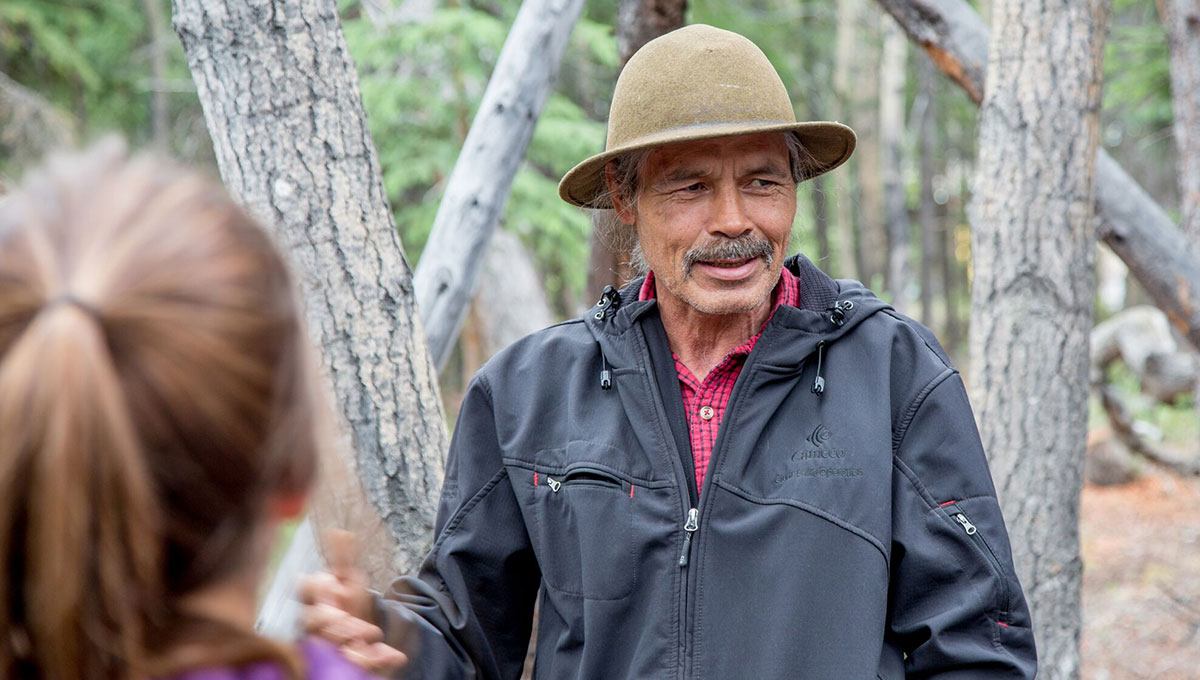
Expanding the debate around reconciliation
Stories North was designed to address three primary goals: teaching the importance of listening and respect, especially as it applies to cross-cultural learning and working with Indigenous peoples; expanding students’ conceptualizations of the Yukon, its histories, its communities, its terrains and, most important, the interconnections flowing among these elements; and cultivating students’ abilities to engage in and expand debates around reconciliation by embracing discomfort, accepting responsibility and finding constructive, culturally sensitive, equitable and creative narratives that include the potential for reciprocity.
“This course is an experiment in experiential learning,” wrote Holmes. “We will develop our knowledge and understanding of the Yukon and its First Peoples through firsthand accounts. We will work within the contexts we are learning about and take time to reflect on what is being shared, generating critical reflections about our own histories and perspectives.
“We will also apply these insights to the craft of journalism, recognizing its missteps, constraints and potential to be something we may have never yet considered. Experiential education often focuses on future employability. While I certainly hope that this course produces better qualified journalists, the intent is more expansive: creating better citizens.”
Despite these lofty ambitions, at its core Stories North is relatively simple. “It’s about bringing people together,” says Holmes, “so they start to know each other and start talking.”
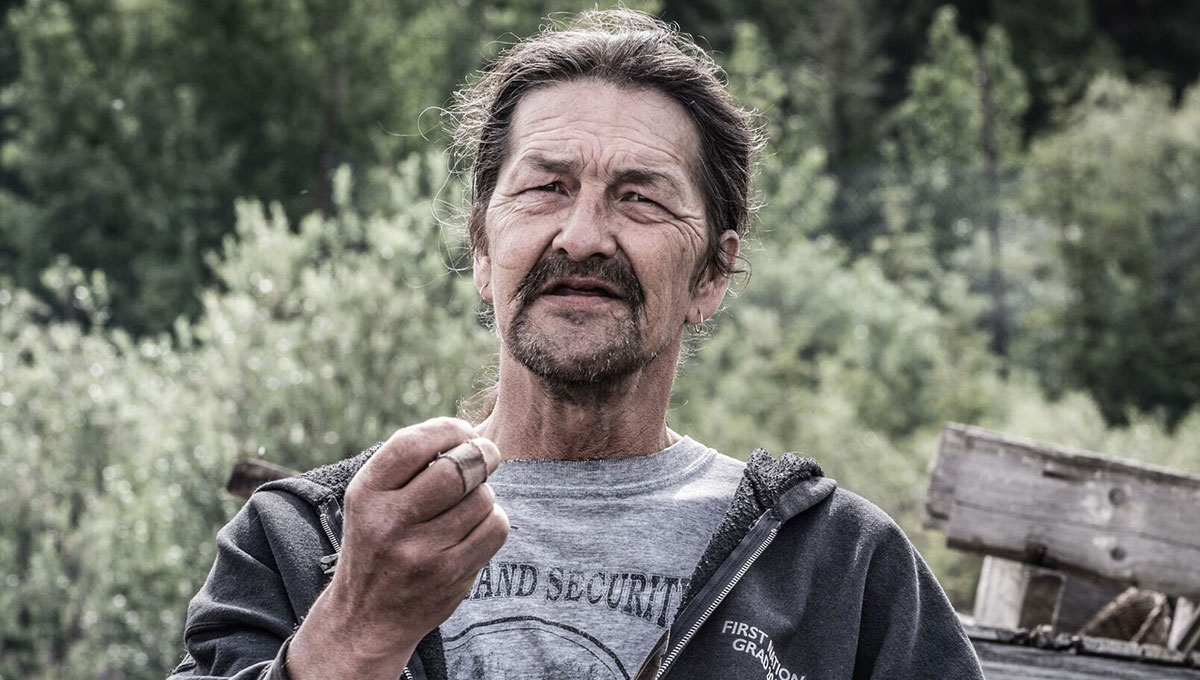
Stories North:
Experiential learning outside the classroom
Students arrived in Whitehorse on June 20 and jumped right into a series of active learning sessions, including walk-n-talk mobile lectures, a blanket exercise conducted by a member of the Kwanlin Dün First Nation, attending National Aboriginal Day celebrations, participating in a public panel on Indigenous representation in Yukon co-organized by Journalists for Human Rights, a residential schools workshop led by local Indigenous leaders, and a canoe trip down the Yukon River.
Producing quick-turn-around content for the web, such as a photo essays and podcasts, and working on more intensive multimedia pieces, students also covered Canada Day in the territory and the Atlin Arts and Music Festival, 175 kilometres from Whitehorse in northern B.C.
“We’ve had very little time in the classroom,” Holmes says. “That’s what I had hoped for.
“One of the main reasons I wanted to do this course is that traditional ways of lecturing are increasingly ineffective. Unfortunately, many students seem to feel they can tune out when they step into a lecture hall. We’re competing with a lot of digital noise. This type of course puts more emphasis on students participating and being active learners — and grappling with concepts around reconciliation requires deep learning.”
Beyond its overarching goals, Stories North is helping students develop their journalistic skills, from approaching strangers for interviews to working long days to report on challenging and complex stories.
They’re having fun on the job, too. In Atlin, Levy-McLaughlin’s highlight was a 20-minute podcast interview with musicians Joel Plaskett and Ben Caplan inside Wolf Pack Force, a shag-carpeted 1985 van the students are using as their mobile recording studio.
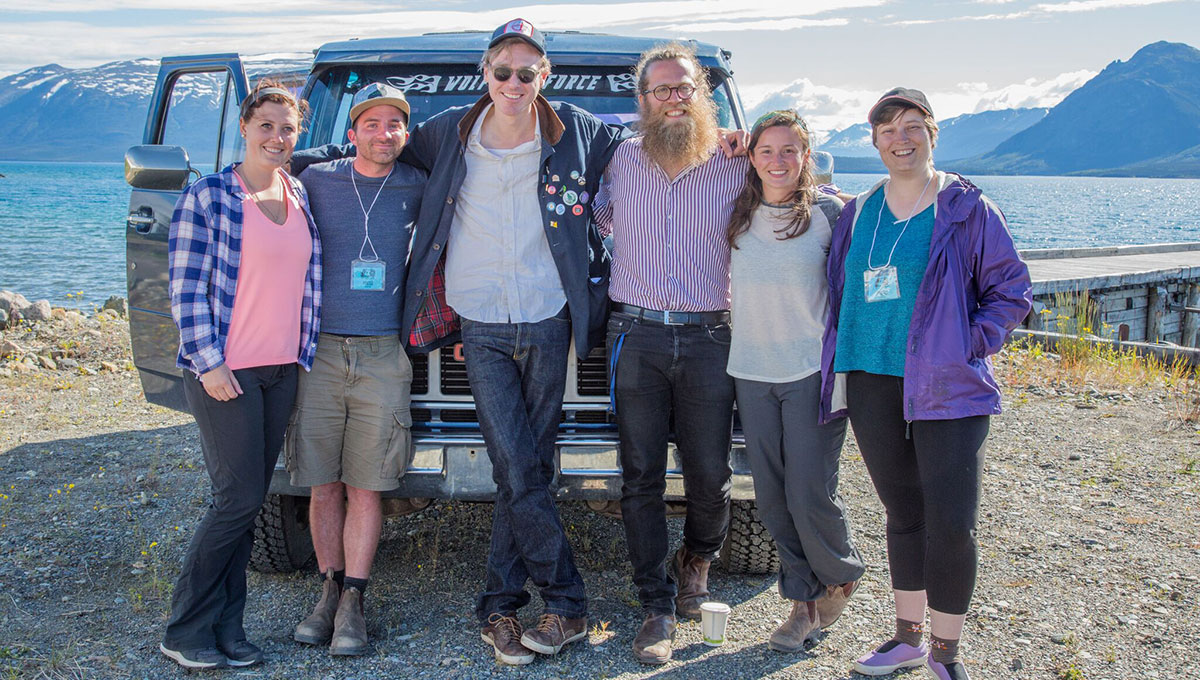
This type of course, says Holmes, could become a model for new offerings in journalism and other disciplines. “There’s potential to apply this model in so many exciting directions,” she says. “Everything that has happened over the past three weeks tells me that there’s a need and desire for programs like this — and that we could and should do it again.
“Having students away from home makes a difference, especially when they’re in their early 20s, which is such a formative time. They’re pushed outside their comfort zones. These types of trips can change people’s lives. And we don’t always have to travel as far as the Yukon to do this.
“It’s immersive journalism and immersive learning,” adds Holmes, “but much of what has happened, I could categorize as magic.”
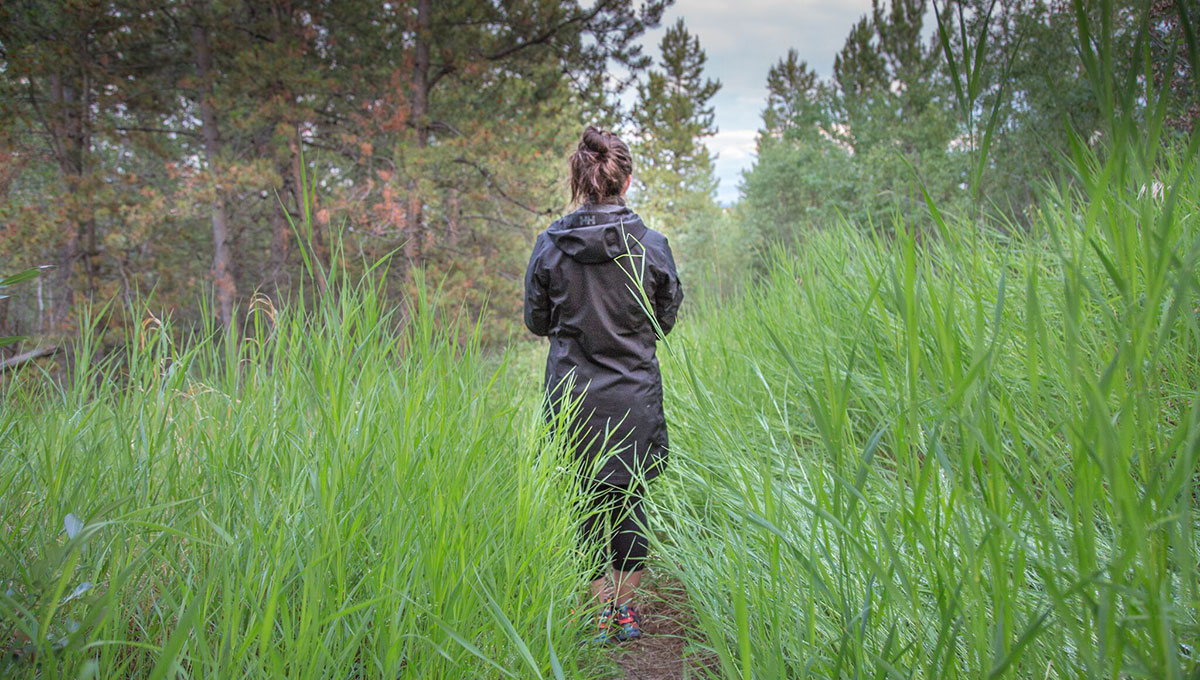
Monday, July 17, 2017 in Experiential Learning, Indigenous, Journalism and Communication
Share: Twitter, Facebook
